Table of Contents
- Introduction
- Why Visit Benin Republic?
- Essential Travel Tips for Visiting Benin Republic
- Visa Requirements
- Health Precautions
- Currency and Payment Methods
- Language
- Transportation Options
- Local Cuisine
- Cultural Etiquette
- Safety Tips
- Best Time to Visit
- Accommodations
- Explore the Cities of Benin
- Cotonou
- Porto-Novo
- Ouidah
- Abomey
- Natitingou
- Djougou
- Conclusion
- FAQs
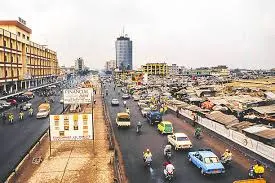
Essential Travel Tips for Visiting Benin Republic
Introduction
Traveling to Benin Republic offers a unique opportunity to explore a country rich in history, culture, and stunning landscapes. Known as the birthplace of Vodou and home to vibrant markets and beautiful beaches, Benin is a destination that should not be overlooked. In this article, we provide essential travel tips for visiting Benin Republic to help you make the most of your trip.
Why Visit Benin Republic?
Benin is often overshadowed by its neighboring countries but boasts a wealth of experiences, from historic sites to natural wonders. The country’s diverse culture, coupled with its hospitable people, makes it an attractive destination for travelers seeking authenticity. The vibrant markets, traditional festivals, and historical landmarks offer an enriching experience that goes beyond the typical tourist trail.
Essential Travel Tips for Visiting Benin Republic
Here are essential travel tips for visiting Benin Republic that will ensure your trip is smooth and enjoyable:
1. Visa Requirements
Before traveling, check if you need a visa. Most travelers will need to apply for a visa online or at their nearest Benin embassy. The essential travel tips for visiting Benin Republic include ensuring your passport is valid for at least six months and contains sufficient blank pages. Some nationalities can also obtain a visa on arrival, but it’s wise to confirm this before your trip.
2. Health Precautions
A yellow fever vaccination is mandatory for entry into Benin. Make sure to bring your vaccination certificate. Other recommended vaccinations may include hepatitis A, typhoid, and meningitis. Additionally, consider packing malaria prophylactics, as mosquito-borne illnesses can be a concern. Always carry a basic first-aid kit and any personal medications, as pharmacies may not always stock familiar brands.
3. Currency and Payment Methods
The local currency is the West African CFA franc (XOF). While some establishments accept cards, it’s advisable to carry cash for transactions, especially in rural areas. ATMs are available in urban areas, but they may not always work with foreign cards. It’s best to withdraw money in smaller denominations for local markets, where bargaining is common. Knowing the exchange rate can help you avoid overpaying.
4. Language
French is the official language of Benin. While some locals may speak English, having a translation app can be helpful. Learning a few basic French phrases will enhance your interactions. Common phrases like “Bonjour” (Hello) and “Merci” (Thank you) can go a long way in showing respect for the local culture.
5. Transportation Options
Renting a car is the best way to explore the country, but be prepared for varying road conditions. Local taxis and “zems” (motorcycle taxis) are other options, especially in cities. Always negotiate fares in advance and confirm the route to avoid misunderstandings. For longer distances, consider taking a bush taxi, which can be a fun and affordable way to meet locals.
6. Local Cuisine
Don’t miss out on Benin’s delicious food! Try local dishes such as fufu, jollof rice, and grilled fish. Street food is often safe and tasty, but stick to busy stalls for the freshest options. Additionally, sampling local beverages like palm wine or ginger juice can enrich your culinary experience. Exploring local eateries gives you a taste of authentic Beninese culture.
7. Cultural Etiquette
Respect local customs and traditions. Dress modestly, especially when visiting religious sites, and always ask for permission before taking photos of people. Understanding the cultural significance of Vodou will enrich your experience. Participating in local ceremonies, if invited, can also provide insight into the community’s values and beliefs.
8. Safety Tips
Benin is generally safe for tourists, but petty crime can occur. Keep your belongings secure, avoid walking alone at night, and stay updated on local news. When using ATMs, choose well-lit locations and be discreet. It’s also advisable to register with your embassy upon arrival, so they can assist you in case of emergencies.
9. Best Time to Visit
The ideal time to visit is during the dry season, from November to March. The weather is pleasant for outdoor activities, and you can enjoy various cultural events. If you’re interested in festivals, plan your visit around January for the annual Vodou Festival in Ouidah, which attracts visitors from around the globe.
10. Accommodations
Benin offers a range of accommodations, from budget guesthouses to luxury hotels. Research your options in cities like Cotonou and Porto-Novo to find the best fit for your travel style. Many hotels provide essential services, including Wi-Fi and breakfast. Reading reviews can help you make an informed choice.
11. Explore the Cities of Benin
Cotonou
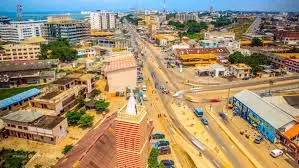
Cotonou is the largest city and economic capital, known for its bustling markets like Dantokpa and beautiful beaches. It serves as a great base for exploring the country. Don’t miss the chance to visit the Ganvie floating village, which offers a glimpse into unique local lifestyles.
Porto-Novo
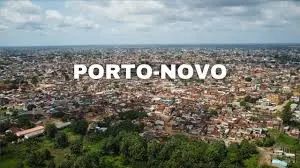
The official capital, Porto-Novo, features colonial architecture and museums like the Ethnographic Museum. Its serene parks provide a perfect escape. Explore the city’s cultural heritage by visiting the Royal Palace and the Artisanal Center for local crafts.
Ouidah

Ouidah is significant for its role in the slave trade and Vodou culture. Key attractions include the Slave Route and vibrant local markets. The Ouidah Museum of History provides context to the city’s past and its enduring cultural significance.
Abomey
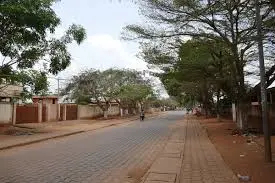
Once the capital of the Dahomey Kingdom, Abomey is famous for its royal palaces, now a UNESCO World Heritage Site, offering a glimpse into the past. The palace complex features fascinating artifacts and murals that tell the story of the kingdom.
Natitingou
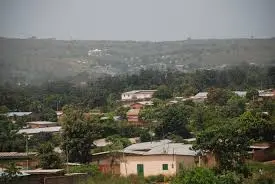
Located near the Atakora Mountains, Natitingou is ideal for nature lovers and is a gateway to Pendjari National Park, known for its wildlife. Adventurous travelers can partake in trekking and guided tours to spot elephants, lions, and various bird species.
Djougou
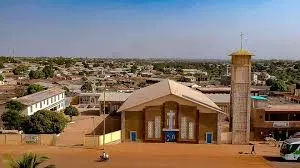
This northern city is known for its vibrant markets and cultural diversity. It’s also a base for exploring the Ganvié floating village. The local art scene is vibrant, offering opportunities to buy unique handicrafts and textiles directly from artisans.
Conclusion
With its rich culture, fascinating history, and welcoming people, Benin Republic is a hidden gem waiting to be explored. By following these essential travel tips for visiting Benin Republic, you can make the most of your experience. Each city offers unique attractions and experiences that contribute to the charm of this West African nation. Whether you’re interested in history, nature, or local culture, Benin has something for every traveller.
Ready to simplify your experience in Benin Republic? Let us help you secure your Consular Card and Resident Permit quickly and without hassle for just 25,000 CFA! To take the next step, APPLY NOW or contact us at (+229 9471 1553) or via WhatsApp at [+229 5383 6082] to schedule a viewing. You can also visit our website at campusbenin.org for more information and to start your application process today! Don’t miss this opportunity to get your consular card registered.
FAQs
- What vaccinations do I need before travelling to Benin? You must have a yellow fever vaccination, and it’s advisable to consult your healthcare provider for other recommended vaccinations.
- Is English widely spoken in Benin? French is the official language, and while some locals speak English, it’s helpful to know basic French phrases.
- What is the currency in Benin? The currency is the West African CFA franc.
- What are the best times to visit Benin? The best time to visit is during the dry season from November to March.
- How safe is it to travel in Benin? Benin is generally safe, but travellers should exercise caution and stay aware of their surroundings.
By utilizing these essential travel tips for visiting Benin Republic, you’re set to embark on an unforgettable adventure in this vibrant country!
See More Related: https://campusbenin.org/travel-and-tourism-guide-in-benin-republic/



I was recommended this website by my cousin I am not sure whether this post is written by him as nobody else know such detailed about my trouble You are amazing Thanks
hi good day thanks for the feedback